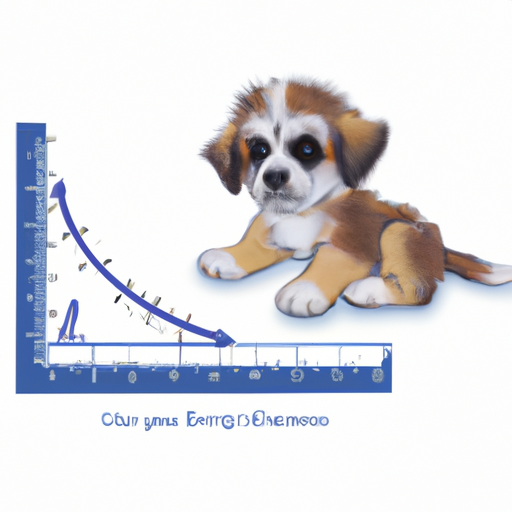Understanding Puppy Growth
When you bring a young puppy home, you may wonder, “When will my furry friend reach full size?” The answer to this question isn’t as straightforward as you might think. Growth rates can vary significantly depending on the breed, nutrition, and other factors. Additionally, different parts of a puppy’s body may grow at different rates.
Factors Affecting Puppy Growth
Several factors can affect the rate at which your puppy grows. Let’s take a look at some of the most significant ones.
-
Breed: The breed is the most crucial factor. Giant breeds like Great Danes may take up to three years to reach their full size, whereas smaller breeds like Chihuahuas may be fully grown by their first birthday.
-
Nutrition: Proper nutrition is essential for healthy growth. Puppies that do not get enough to eat may grow more slowly, while overfeeding can lead to rapid, unhealthy weight gain.
-
Health: Certain health issues, like worms or other parasites, can slow a puppy’s growth.
-
Genetics: Just like humans, some dogs are naturally smaller or larger than average.
The Stages of Puppy Growth
Generally, puppies go through several distinct growth stages.
-
Birth to Two Weeks: The neonatal stage. Puppies are entirely dependent on their mother.
-
Two to Four Weeks: The transitional stage. Puppies begin to open their eyes and move around.
-
Four to Eight Weeks: The socialization stage. Puppies start to interact with the world around them.
-
Eight to Twelve Weeks: The juvenile stage. Puppies are weaned from their mother and begin learning basic commands.
-
Twelve Weeks to Six Months: The adolescent stage. Puppies go through a growth spurt and begin to test boundaries.
-
Six Months to One Year: The young adult stage. Puppies continue to grow and learn.
-
One Year and Beyond: The adult stage. Most dogs are fully grown by this point, though some may continue to fill out.
Breed-Specific Growth Rates
Different breeds of dogs grow at different rates. Below is a general guideline for when various breeds may reach full size.
| Breed | Age at Full Size |
|---|---|
| Small breeds (e.g., Chihuahua, Pomeranian) | 9-12 months |
| Medium breeds (e.g., Border Collie, Bulldog) | 12-16 months |
| Large breeds (e.g., German Shepherd, Labrador Retriever) | 18-24 months |
| Giant breeds (e.g., Saint Bernard, Great Dane) | 24-36 months |
How to Tell When Your Puppy is Fully Grown
While there is no definitive way to tell when a puppy is done growing, there are a few signs you can look for.
-
Weight Gain Slows or Stops: When your puppy’s weight gain slows or stops, it’s a good sign that they are near their adult size.
-
Height Plateaus: Most puppies reach their adult height before they reach their adult weight. If your puppy’s height hasn’t changed in a while, they may be done growing.
-
Physical Maturity: As puppies reach their adult size, they also start to look more mature. They lose their ‘puppy fat,’ and their features become more defined.
FAQ
When do large breed puppies stop growing?
Most large breed dogs stop growing between 18 and 24 months old. However, some giant breeds may continue to grow until they are three years old.
How can I tell if my puppy is underweight?
Your puppy might be underweight if you can see their ribs, spine, or hip bones, or if they have a visible waist when viewed from above. If you’re concerned about your puppy’s weight, you should consult a vet.
What should I feed my puppy to ensure healthy growth?
Puppies need a diet rich in protein to support their rapid growth. Look for high-quality puppy food that lists a source of animal protein as the first ingredient.
Can I overfeed my puppy?
Yes, overfeeding can lead to rapid weight gain and obesity, which can cause health problems. Follow the feeding guidelines on your puppy’s food, and consult your vet if you’re unsure.
When should I spay/neuter my puppy?
The best time to spay/neuter a puppy is usually around six months of age, but it can depend on the breed and your vet’s advice.
Remember, every puppy is unique and will grow at its own pace. Be patient, provide a healthy diet, and regular veterinary care, and your puppy will grow into a strong and healthy adult.



